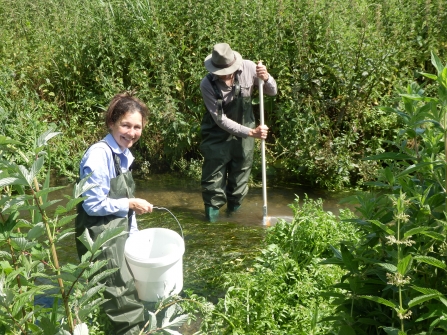This publication follows the ‘Insect declines and why they matter’ report launched last year, which examined mounting evidence of insect decline and concluded that “the consequences are clear; if insect declines are not halted, terrestrial and freshwater ecosystems will collapse, with profound consequences for human wellbeing.”
This new report cites examples of farmers, communities, councils and charities that are boosting insect populations and proving that it can be done.
For example, Dorset and Wiltshire Wildlife Trusts, together with the Riverfly Partnership, have trained volunteers to monitor freshwater invertebrates, track population trends and help identify pollution incidents. The Riverfly Partnership represents anglers, conservationists, entomologists, scientists, water course managers and relevant authorities, all working together to protect the water quality of our rivers. In 2019, 50 river sites in Dorset were monitored as part of this project.
The Wildlife Trusts Chief Executive, Craig Bennett, said, “In my lifetime 41% of wildlife species in UK have suffered strong or moderate decreases in their numbers and insects have suffered most. This has had a huge effect on the rest of the natural world. The vital role that insects perform is undermined and everything that depends on them suffers, from hedgehogs to nightingales, wildflowers to wetlands.
“We want to see an ambitious pesticide reduction target and at least 30% of land being managed for nature so that insects can become abundant once more. We’re calling on everyone to take action for insects and become an insect champion.”
DWT's Director of Conservation, Imogen Davenport said, “Insects need our help and this report shows how communities, famers and individuals can take action to reduce harmful impacts and create more places where insects can thrive. Whether it’s getting involved with a citizen science project such as riverfly monitoring, planting nectar-rich plants or cutting back on pesticides, there is something everyone can do to help.”
To read the new report and pledge to become an insect champion, click here.

